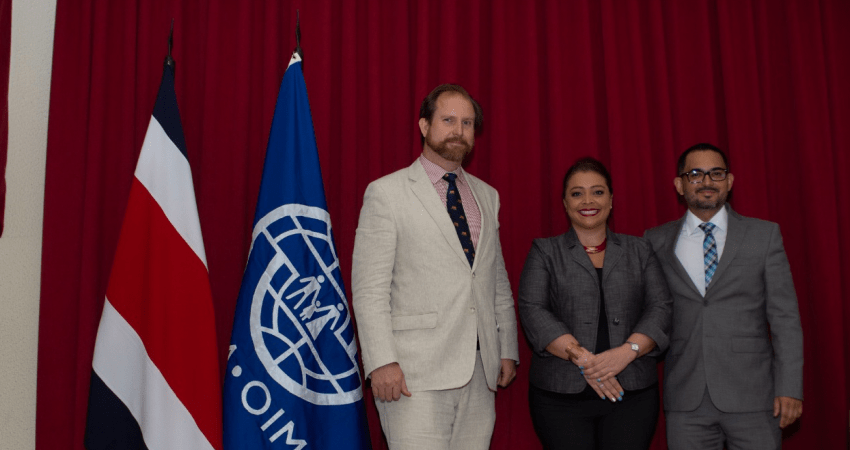The Government of Costa Rica improves migration management with support from IOM

San José. The First Migration Symposium 2019 was held in Costa Rica September 17-18, an opportunity to contextualize the current migration situation in the country and discuss best practices regarding the approach to mixed migration flows and support to migrants in conditions of vulnerability. The event was organized by the General Directorate of Migration and Foreign Affairs, with support from the International Organization for Migration (IOM).
During the seminar, some of the migration governance instruments currently available in the country were presented, including the Comprehensive Plan for Addressing Mixed Migration Flows 2018-2022 and the Guide for Return from and to Costa Rica for migrant children and adolescents, which were developed with technical support from IOM.
Additionally, the preliminary results of a study conducted between January and June of 2019 were presented. This study assessed the living conditions of Nicaraguan migrants who have entered Costa Rica or applied for asylum since April 2018 and identified their primary needs.
The study was a response to the urgent needs of governmental institutions for detailed information about Nicaraguans who arrived in Costa Rica during this period. It was an exhaustive and rigorous investigation, including 491 surveys with Nicaraguan migrants, six focus groups aimed at specific migrant populations, and 14 interviews with representatives of key institutions and organizations to learn about the measures they have taken to assist migrants.
This effort also collected information about the primary institutions and organizations working directly with migrants (SOS Nicaragua, CENDEROS, RET International, the Institute of Mixed Social Support, and the General Directorate for Migration and Foreign Affairs), how these collaborations have been channeled, and the inter-institutional support they have received.
“This first seminar will generate recommendations for supporting actions we should continue and actions we should begin implementing in the future to manage migration, since it is a constantly growing and evolving issue,” stated Raquel Vargas, director of DGME.
Both the seminar and the study are possible thanks to the work of the Regional Migration Program: Mesoamerica-The Caribbean, and to financing by the Bureau of Population, Refugees, and Migration of the Department of State of the United States. The Institute of Municipal Support and Advising (IFAM) and the State of the Region Project collaborated on the study.
